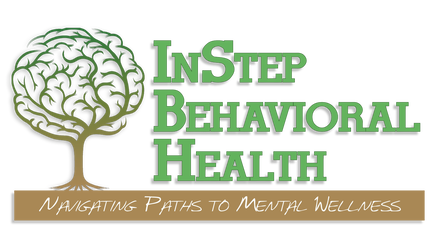Proactive Steps to Manage SAD during Covid
11/14/2020
We are here for you! Clinicians at In Step Behavioral Health are offering telehealth services.
Proactive Steps To Manage SAD (Seasonal Affective Disorder) During Covid
Are you dreading this fall and winter? Do you typically notice a worsening depression and sluggishness during the winter months?
This winter may feel extra long and more difficult when also managing the stress related to Covid.
Seasonal Affective Disorder (SAD) is a kind of depression that is influenced by the seasons. Fall and winter months may bring on or worsen the symptoms of depression. Less often, spring and summer months may trigger the same type of changes.
Many people experiencing SAD may report:
Steps toward being proactive this fall and winter
https://www.mayoclinic.org/tests-procedures/light-therapy/about/pac-20384604
Georgina Srinivas Rao, MD is a board certified general and geriatric psychiatrist who serves as the medical director of In Step Behavioral Health. Dr. Rao recognizes the importance of seeing each person holistically beyond the diagnosis and/or labels. Dr. Rao works toward engaging her patients to actively participate in their treatment to reach their wellness goals.
We are here for you! Clinicians at In Step Behavioral Health are offering telehealth services.
Proactive Steps To Manage SAD (Seasonal Affective Disorder) During Covid
Are you dreading this fall and winter? Do you typically notice a worsening depression and sluggishness during the winter months?
This winter may feel extra long and more difficult when also managing the stress related to Covid.
Seasonal Affective Disorder (SAD) is a kind of depression that is influenced by the seasons. Fall and winter months may bring on or worsen the symptoms of depression. Less often, spring and summer months may trigger the same type of changes.
Many people experiencing SAD may report:
- Feeling more blue or sad along with other symptoms of depression
- Increased fatigue and sluggishness
- Increase in carbohydrate craving
- Sleep changes
- Biological clock: Circadian rhythm changes decrease in sunlight may disrupt your body's internal clock and lead to feelings of depression.
- Hormonal changes: Darker days increase melatonin, a hormone that regulates sleep.
- Neurotransmitter variations: Changes in serotonin transporter protein in winter months than summer months.
- Vitamin D level decreases with decrease in sunlight
Steps toward being proactive this fall and winter
- Actively plan your exercise routine this season
- Don’t go through it alone
- Plan out your social connections to maintain safety
- Consider psychotherapy to increase your coping strategies
- Talk with your mental health clinician or primary care provider about light therapy
- Supplement with Vitamin D3
https://www.mayoclinic.org/tests-procedures/light-therapy/about/pac-20384604
Georgina Srinivas Rao, MD is a board certified general and geriatric psychiatrist who serves as the medical director of In Step Behavioral Health. Dr. Rao recognizes the importance of seeing each person holistically beyond the diagnosis and/or labels. Dr. Rao works toward engaging her patients to actively participate in their treatment to reach their wellness goals.
